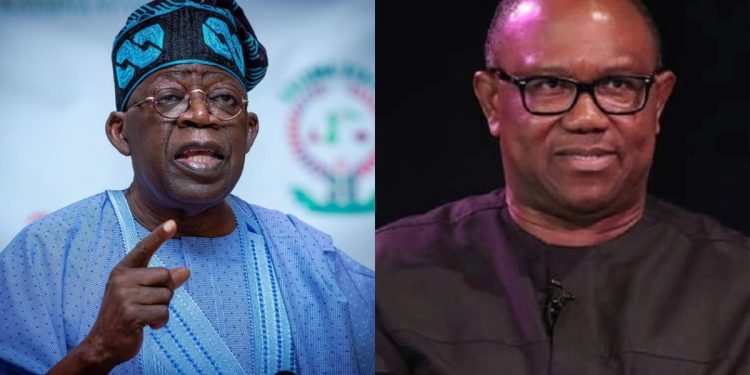In a landmark decision that reverberates through Nigeria’s political landscape, the Presidential Election Petitions Tribunal has rendered its judgment in the hotly contested election between Peter Obi and President Tinubu.
This sweeping verdict encompasses multiple facets of the electoral tussle, offering insights into the acceptance of witnesses, and the credibility of international election reports.
The tribunal also touched on the allegations of convictions, the interpretation of electoral laws, and the rhetoric underpinning the petitions. Here are highlights and some in-depth exploration of the tribunal’s momentous rulings.
Witnesses’ Acceptance and Election Observers Report
The tribunal’s proceedings were marked by a pivotal decision regarding the acceptance of witnesses. It revealed that ten out of thirteen witnesses presented by Peter Obi and the Labour Party were rejected.
The tribunal underscored the constitutional imperative that witness statements on oath must be filed along with the petition.
Furthermore, the European Union Election Observers Mission report, tendered by Obi and the Labour Party, was deemed inadmissible due to its presentation by a non-official of the EU body.
Tinubu’s Conviction and Qualification
A central and contentious issue in the case revolved around President Tinubu’s alleged convictions in the United States.
The tribunal’s verdict was unequivocal – Peter Obi and the Labour Party failed to substantiate these claims.
The court clarified that the monetary fine imposed on Tinubu by a US court pertained to a civil forfeiture proceeding, not a criminal conviction.
In addition, the tribunal upheld the qualification of both President Tinubu and Vice President Kashim Shettma to contest the presidential election.
Equal Status for FCT
An important aspect of the tribunal’s ruling addressed the status of the Federal Capital Territory (FCT) in comparison to other Nigerian states.
The tribunal emphasized that the FCT does not enjoy a privileged status over other states.
It cited constitutional provisions that mandate a presidential candidate to secure a majority of votes nationwide and at least 25% support in two-thirds of the 36 states and the FCT.
INEC’s Authority to Decide on Result Transmission
The tribunal handed down a significant verdict on the Independent National Electoral Commission’s (INEC) authority and discretion in determining the mode of election result transmission.
It invoked Sections 52 and 65 of the Electoral Act 2022, which grant INEC the freedom to prescribe the method of transmitting election results during the poll.
A petition aimed at annulling the election victory based on alleged shortcomings in INEC’s Results Viewing Portal was firmly dismissed.
Rhetoric-Based Petition Struck Out
Lastly, the tribunal delivered a resounding judgment on the nature of the petitions presented by the Labour Party and Peter Obi.
It characterized the entirety of their petition as rhetoric-driven, encompassing claims that sought to nullify Tinubu’s victory due to an alleged failure to secure 25% support in the FCT and doubts about Tinubu’s competence.
The tribunal emphatically struck out these claims, deeming them fallacious and incredibly ridiculous.
Looking Ahead
The Presidential Election Petitions Tribunal’s comprehensive verdict in the Obi vs. Tinubu presidential election case leaves no room for ambiguity on where the justices that composed the panel stood.
Their verdict seemingly underscores the paramount importance of evidence and adherence to electoral laws in the adjudication of election-related disputes. This verdict will go a long way in the nation’s history.
As the political landscape in Nigeria continues to evolve, this landmark ruling will undoubtedly influence future legal battles and political discourse. It will continue to reverberate for years to come.
It is believed that the last has not been heard about this battle by Peter Obi, the presidential candidate of the Labour Party in the past presidential election to reclaim what he believes to be his stolen mandate.












